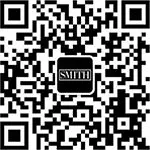Smith Earns Six Certifications at Its Singapore Operational Hub
These certifications demonstrate the company’s unwavering adherence to the industry’s highest standards for quality and security
Houston, TX (March 3, 2024) – Smith, a leading global distributor of electronic components and semiconductors, today announces its certification to six standards at the company’s distribution center in Singapore, which include:
- ISO 9001
- ISO 14001
- ISO 45001
- ANSI/ESD S20.20
- CCAP-101
- TAPA FSR Level A
These certifications reinforce Smith’s global commitment to upholding industry best practices for quality, safety, security, and sustainability.
“Smith’s comprehensive testing and inspection processes ensure that we not only meet, but also exceed, our customers’ stringent requirements,” said Art Figueroa, Chief Operating Officer at Smith. “These certifications affirm our commitment to these standards and underscore the consistency of our products and services across our global locations.”
ISO 9001
The ISO 9001 standard defines requirements for establishing a quality management system that ensures the company delivers products and services to meet customer requirements and continually improves upon the quality of work performed. Smith has maintained its long-established ISO 9001 certification at its Houston headquarters since 2002 and at its hubs in Hong Kong and Amsterdam since 2010.
ISO 14001
The ISO 14001 standard defines requirements for establishing an environmental management system to identify and address potential risks, minimize the company’s impacts to the environment, and maintain its compliance with environmental regulations. Typical outcomes of implementing the ISO 14001 standard include reducing operational waste and energy usage and preparing plans to appropriately contain and report environmental incidents. Smith’s Houston headquarters has achieved and maintained its ISO 14001 certification since 2005, and the company’s hubs in Hong Kong and Amsterdam have held the certification since 2010 and 2020, respectively.
ISO 45001
The ISO 45001 standard defines requirements for establishing a health and safety management system to address risks affecting personnel safety. Solidifying Smith’s commitment to employee wellbeing, the ISO 45001 certification affirms the company’s ability to appropriately manage occupational health and safety risks. Smith’s Houston hub was previously certified to OHSAS 18001—the benchmark for workplace health and safety prior to the introduction of ISO 45001—since 2015 before transitioning to ISO 45001 in 2020. The company’s distribution centers in Hong Kong and Amsterdam also achieved certification to this standard in 2020.
“Smith’s third-party certifications validate our efforts to operate in an effective, safe, and environmentally conscious manner, and our systems-based approach to quality excellence helps us to ensure we are achieving the highest possible outcomes,” said Art. “We will continue to work within our quality management systems to enhance and evolve our operational processes to extend and expand our service capabilities in Singapore and worldwide.”
ANSI/ESD S20.20
The ANSI/ESD S20.20 standard defines requirements for establishing an ESD control program that ensures components are handled appropriately using proper equipment to help mitigate the risk of potentially costly ESD damage to devices. Smith’s Houston, Hong Kong, and Amsterdam locations previously achieved and maintained this certification since 2003, 2010, and 2011, respectively.
CCAP-101
CCAP-101 certification establishes procedures for the avoidance and mitigation of counterfeit electronic components. This standard helps strengthen Smith’s global quality program through stringent sourcing, inspection, testing, and delivery of product. Smith’s Houston distribution center has maintained certification since 2011, and its hubs in Hong Kong and Amsterdam have been certified since 2012 and 2019, respectively.
TAPA FSR Level A
TAPA’s Facility Security Requirements (FSR) define a set of baseline controls for maintaining supply chain security within the company’s facilities as they pertain to handling, warehousing, and shipping of electronic components. The Level A set of requirements are the highest set of controls defined by this standard. Smith’s operational facilities in Houston, Hong Kong, and Amsterdam achieved TAPA FSR Level A certification in 2018, 2019, and 2020, respectively.
“Smith’s comprehensive security processes and stringent physical and digital controls ensure that our customers’ products are properly protected from the moment they enter our facilities until they are securely shipped to their destinations,” said Terry Fu, Senior Vice President of Operations and Quality, APAC at Smith. “Maintaining these certifications is a team effort, and through the consistent diligence of our operational workforce, we will continue to do our part to safeguard the semiconductor supply chain.”
About Smith
Founded in 1984, Smith is celebrating 40 years of Intelligent Distribution™. As the leading independent distributor of electronic components, Smith sources, manages, tests, and ships billions of components to partners worldwide in every industry and vertical. Offering a comprehensive suite of flexible and scalable supply chain solutions, Smith identifies and delivers customized service programs to support its customers’ success. The company’s expertise is backed by decades of market data, cutting-edge technology, and a systems-based approach to quality excellence. Smith has generated more than USD $12.9 billion in global revenue since 2019 and ranks sixth among all global distributors. Visit www.smithweb.com to learn more.
###
For more information, contact:
Rich Witmer
Smith, Senior Director of Marketing
+1 713.430.2141
Related Articles
READ MORESmith Launches SmithTrade™ Online Marketplace
The company’s newest supply chain solution provides a secure and easy-to-use platform for buying,...
Smith Names Alicia O’Leary Director of Operations and Quality, EMEA
Alicia will foster growth and innovation at the company’s distribution center in Europe
您可通过以下三种方式,轻松关注Smith微信公众号:
- 1. 扫描二维码
- 2. 微信搜索“smithasia”
- 3. 微信搜索“Smith”账号”
